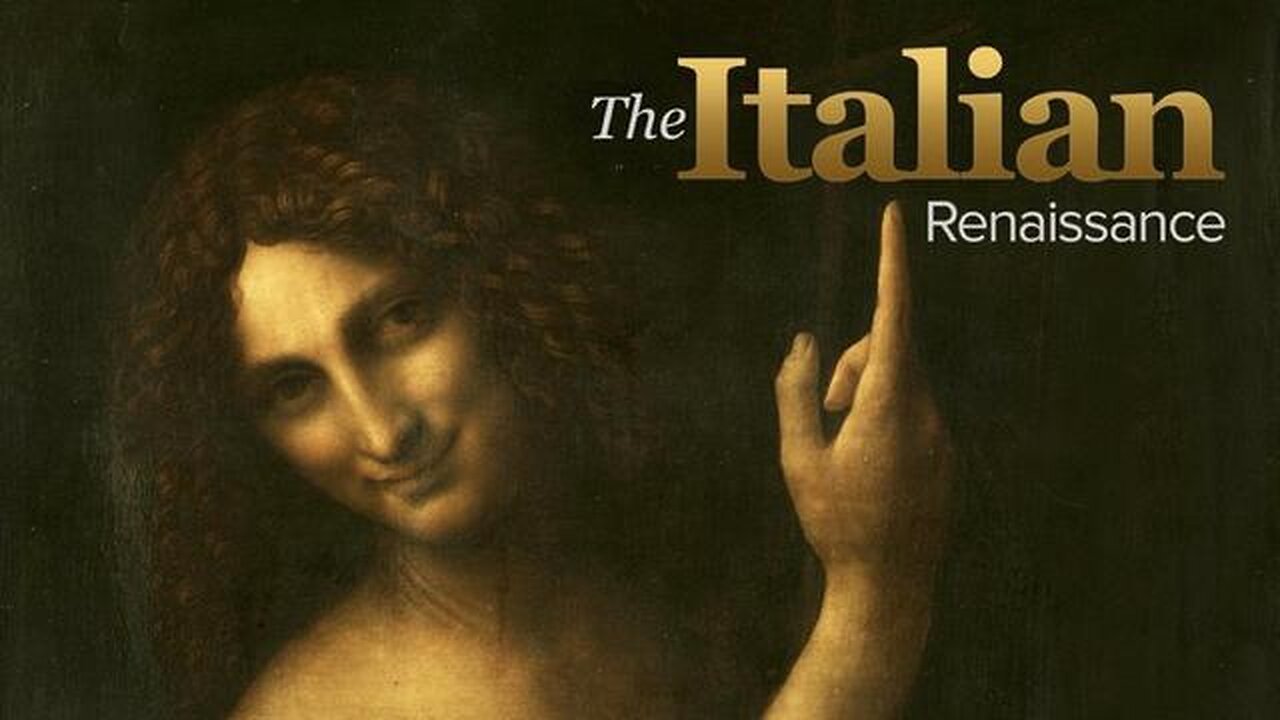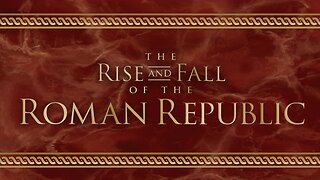Premium Only Content

The Italian Renaissance | Niccolò Machiavelli (Lecture 30)
Lecture 30: Machiavelli (1469–1527) was one of Renaissance Italy’s most interesting thinkers. Best known for his political writing, such as The Prince, and historical works, such as The History of Florence, he was also a fine dramatist, letter writer, and diplomat. Born into a patrician Florentine family the year Lorenzo the Magnificent assumed control of the city, he pursued his career through the turbulent years of Savonarola’s ascendancy and the restoration of the republic. He served as second chancellor, responsible for diplomatic work and, eventually, the creation of a citizen militia. Unfortunately, the militia was a failure, and his skill at negotiation did not save Florence or Italy from the scourge of foreign incursions and the ambitions of the Borgias.
Still, his observations on these events and the lessons he learned entered the Western political consciousness. The Prince is his most read work. Written after the return of the Medici in 1512 removed him from power and relegated him to his small family villa outside the city, this book reviews the situation of Italy, particularly Florence, in an uncertain age. The Prince, using the ruthless Cesare Borgia as model, counsels harsh medicine, based on the need for strong leadership to protect Italy from the northern “barbarians.”
Primary Source Texts:
Niccolò Machiavelli, The Prince.
Secondary Sources:
Maurizio Viroli, Niccolò’s Smile: A Biography of Machiavelli.
Lecture 31: https://rumble.com/v4yov8r-the-italian-renaissance-alessandro-de-medici-lecture-31.html
-
 14:25
14:25
The Great Courses
8 days agoThe Rise And Fall Of The Roman Republic | The Importance of Rome (Lecture 1)
120 -
 2:03:41
2:03:41
The Quartering
5 hours agoTrump To END Income Tax, Captain America Backlash, Obese Rapper Sues Lyft & Surge Pricing In Walmart
70.9K31 -
 1:05
1:05
tether
11 hours agoHadron by Tether - tokenize anything, anywhere
19.3K3 -
 34:32
34:32
Standpoint with Gabe Groisman
20 hours agoGovt. Workers AREN’T Working Says DOGE Chair Sen. Joni Ernst
15.3K8 -
 56:49
56:49
Savanah Hernandez
4 hours agoMASS DEPORTATIONS ARE HERE AND THEY ARE GLORIOUS
30.8K13 -
 21:12
21:12
Clownfish TV
16 hours agoThe Video Game Industry LITERALLY Wants You Dead?!
22K6 -
 1:35:44
1:35:44
Right Side Broadcasting Network
6 hours agoLIVE REPLAY: First Press Briefing by White House Press Secretary Karoline Leavitt - 1/28/25
121K110 -
 1:32:09
1:32:09
vivafrei
8 hours agoJan. 6 Injustices! Jeremy Brown STILL IN JAIL! Untold Story of Ashli Babbitt Killer Michael Byrd!
68.7K23 -
 3:09:52
3:09:52
Benny Johnson
6 hours ago🚨 First Trump White House Press Briefing LIVE Right Now! New Press Secretary With the FLAMETHROWER
160K211 -
 44:12
44:12
Ben Shapiro
5 hours agoEp. 2126 - Did China Just DRINK OUR MILKSHAKE?!
63.9K36